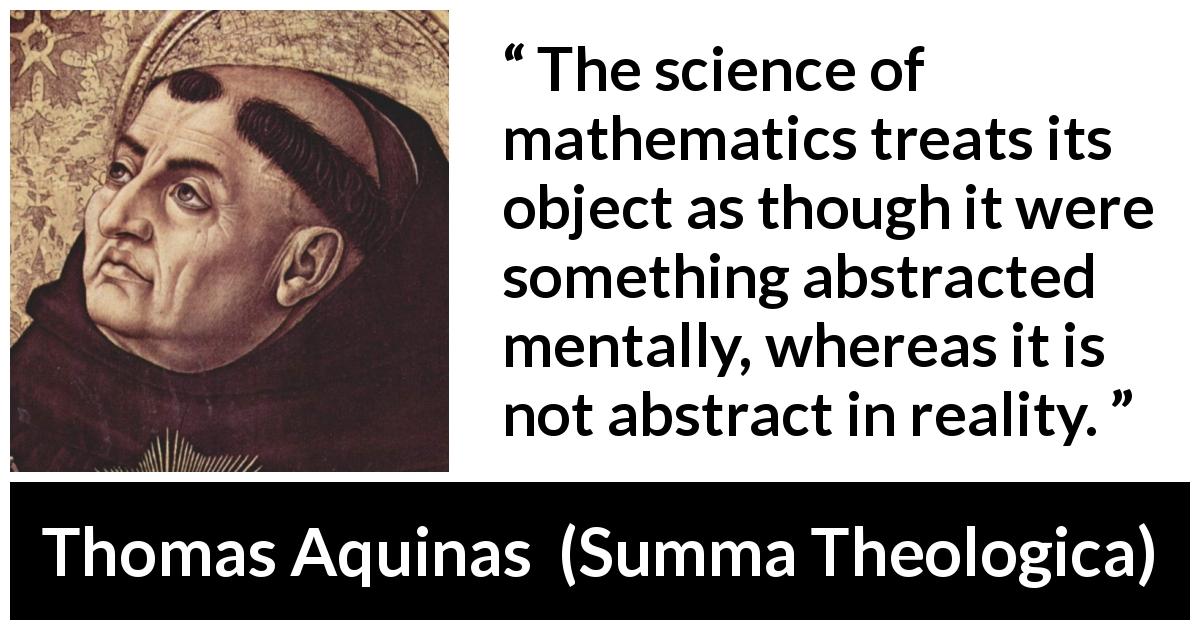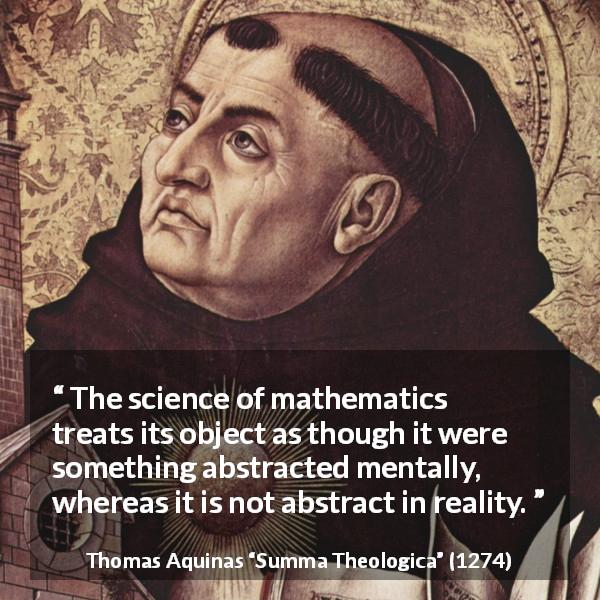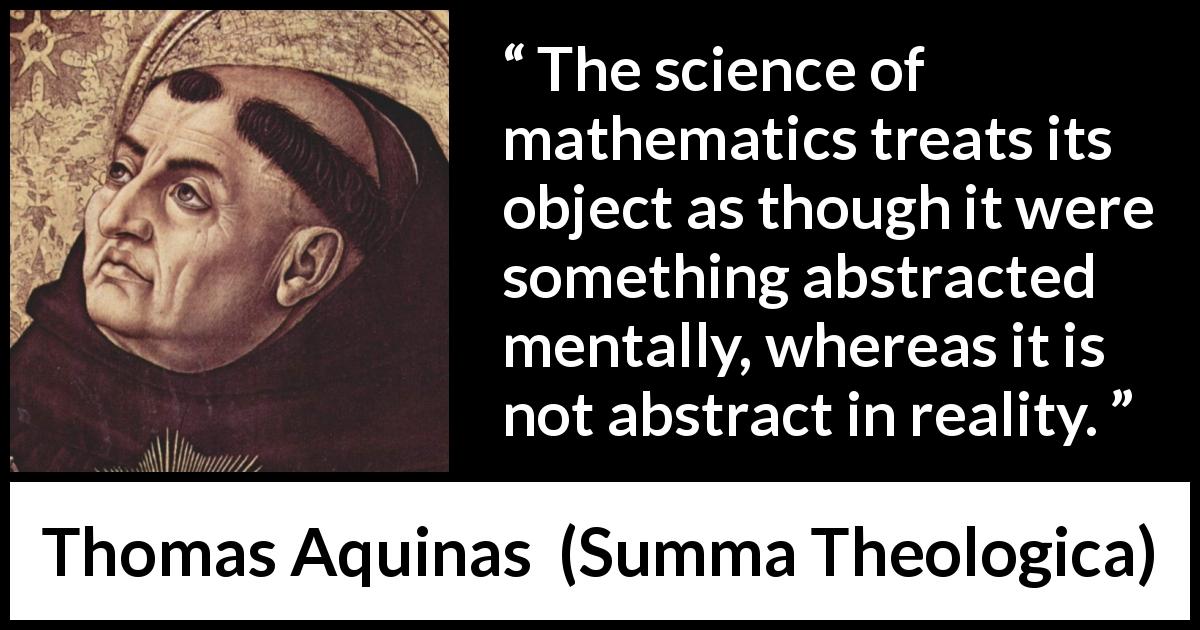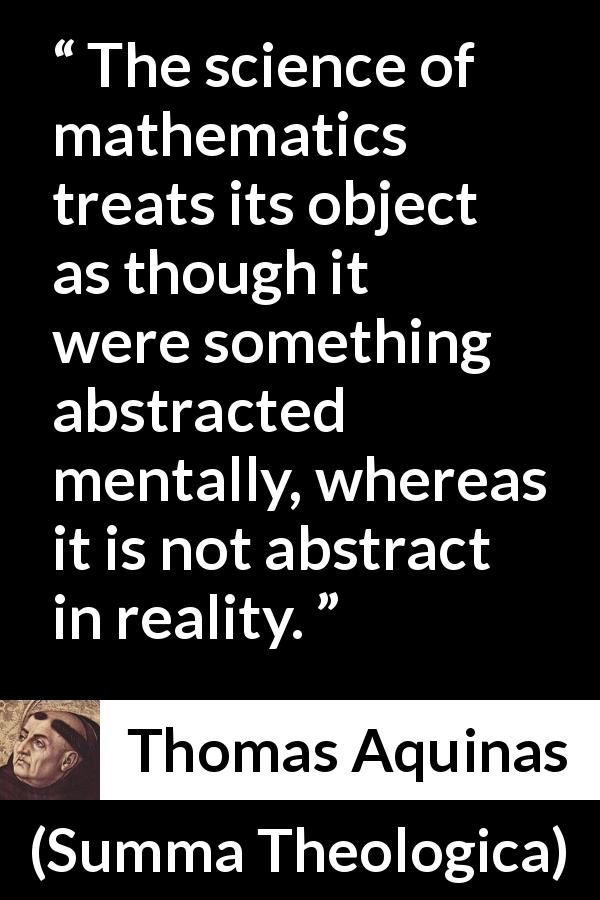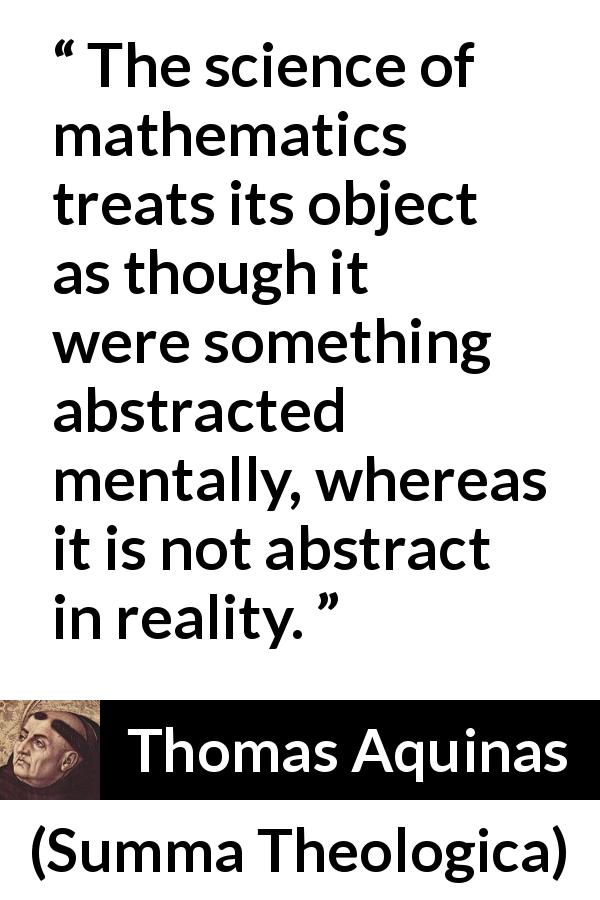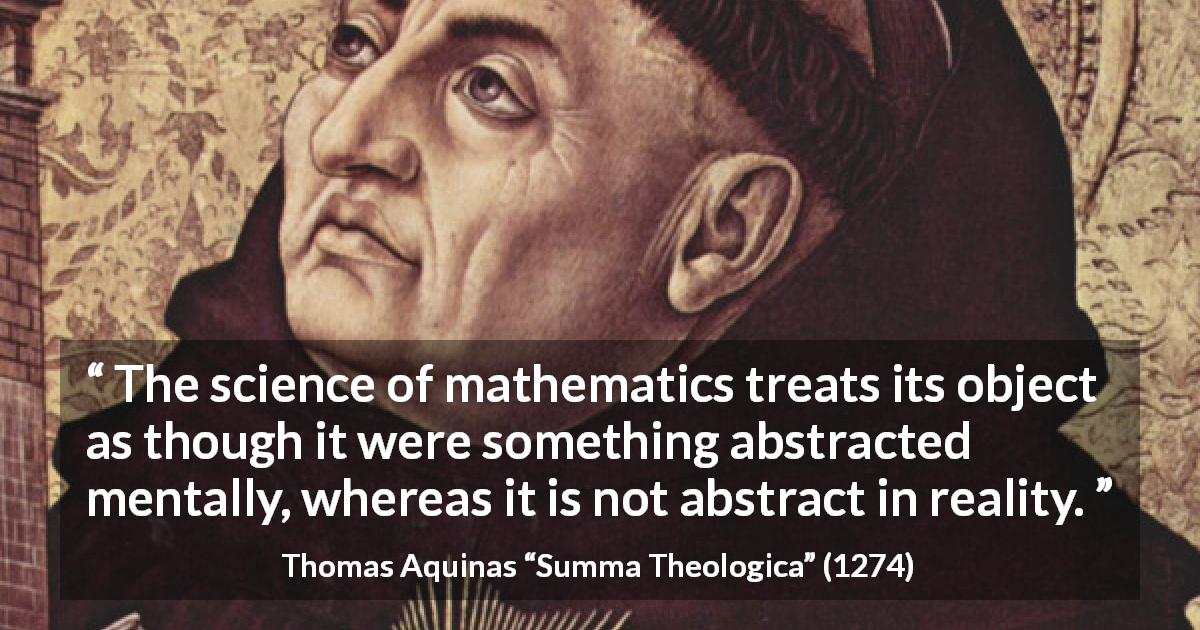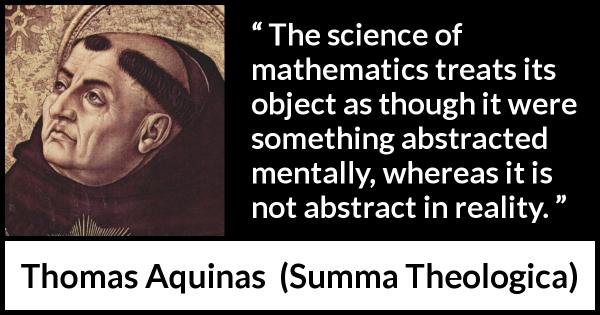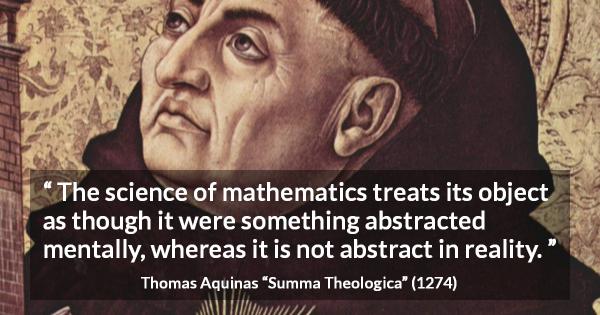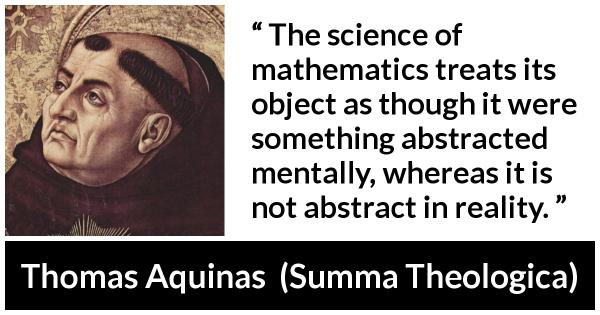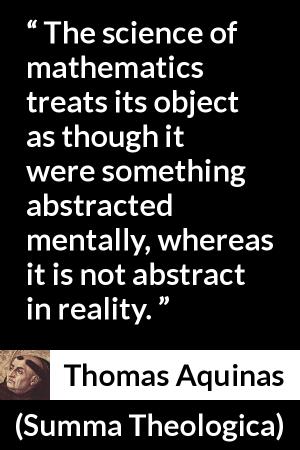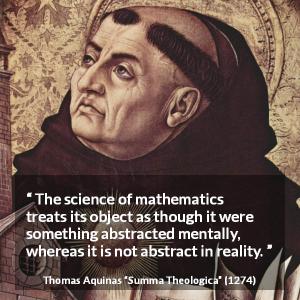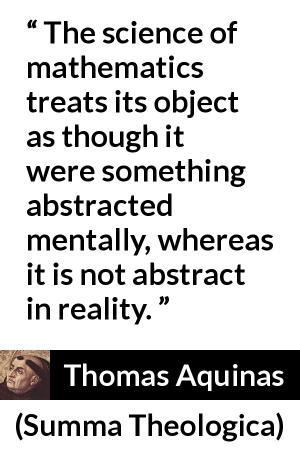“ The science of mathematics treats its object as though it were something abstracted mentally, whereas it is not abstract in reality. ”
Thomas Aquinas, Summa Theologica (1274). copy citation
| Author | Thomas Aquinas |
|---|---|
| Source | Summa Theologica |
| Topic | reality mathematics abstraction |
| Date | 1274 |
| Language | English |
| Reference | |
| Note | Translated by Fathers of the English Dominican Province |
| Weblink | http://www.gutenberg.org/cache/epub/17611/pg17611-images.html |
Context
“But the reason why an efficient cause is required is not merely because the effect is not necessary, but because the effect might not be if the cause were not. For this conditional proposition is true, whether the antecedent and consequent be possible or impossible.
Reply Obj. 3: The science of mathematics treats its object as though it were something abstracted mentally, whereas it is not abstract in reality. Now, it is becoming that everything should have an efficient cause in proportion to its being. And so, although the object of mathematics has an efficient cause, still, its relation to that cause is not the reason why it is brought under the consideration of the mathematician, who therefore does not demonstrate that object from its efficient cause.” source
Reply Obj. 3: The science of mathematics treats its object as though it were something abstracted mentally, whereas it is not abstract in reality. Now, it is becoming that everything should have an efficient cause in proportion to its being. And so, although the object of mathematics has an efficient cause, still, its relation to that cause is not the reason why it is brought under the consideration of the mathematician, who therefore does not demonstrate that object from its efficient cause.” source
